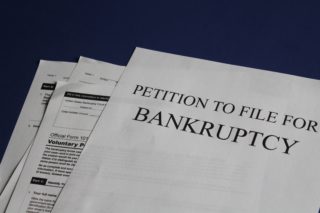 The “return to normal” in courts across the country has brought with it a flurry of trade secrets decisions that address some interesting and instructive issues, both procedurally and substantively. In the last ten days alone, courts in Illinois, Massachusetts, and Texas have weighed in on issues such as the specificity necessary to assert a viable trade secrets claim, the enforceability of a restrictive covenant against an employee who is laid off temporarily but quickly finds a new role and is rehired by the same organization, and the validity of a $700,000,000 jury verdict that was based on a jury question that combined multiple theories of liability. Let’s take a look:
The “return to normal” in courts across the country has brought with it a flurry of trade secrets decisions that address some interesting and instructive issues, both procedurally and substantively. In the last ten days alone, courts in Illinois, Massachusetts, and Texas have weighed in on issues such as the specificity necessary to assert a viable trade secrets claim, the enforceability of a restrictive covenant against an employee who is laid off temporarily but quickly finds a new role and is rehired by the same organization, and the validity of a $700,000,000 jury verdict that was based on a jury question that combined multiple theories of liability. Let’s take a look:
Continue Reading Courts Across the Country Continue to Address Trade Secrets Issues
Jeremy Cohen
Preventing the “Face” of Your Company from Doing an About-Face for a Competitor
 We previously wrote about whether Peloton instructors are (or should be) subject to non-compete agreements owing to their prominent role as the “face” of the company. Today, we take a look at another “face” of Peloton (and other companies), as we consider the use of restrictive covenants for paid corporate spokespeople, such as actors who appear in company ads and “influencers” who use their social media popularity to promote products.
We previously wrote about whether Peloton instructors are (or should be) subject to non-compete agreements owing to their prominent role as the “face” of the company. Today, we take a look at another “face” of Peloton (and other companies), as we consider the use of restrictive covenants for paid corporate spokespeople, such as actors who appear in company ads and “influencers” who use their social media popularity to promote products.
Continue Reading Preventing the “Face” of Your Company from Doing an About-Face for a Competitor
Erik Weibust, Jeremy Cohen, Marcus Mintz, and J. Scott Humphrey Published in Intellectual Property & Technology Law Journal
 Seyfarth partners Erik Weibust, Jeremy Cohen, Scott Humphrey, and Marcus Mintz recently published an article entitled “Protecting Trade Secrets Without Breaking the Bank (or Even Negatively Affecting Profits)” in the Intellectual Property & Technology Law Journal. The article addresses the use of litigation funding in trade secret cases.
Seyfarth partners Erik Weibust, Jeremy Cohen, Scott Humphrey, and Marcus Mintz recently published an article entitled “Protecting Trade Secrets Without Breaking the Bank (or Even Negatively Affecting Profits)” in the Intellectual Property & Technology Law Journal. The article addresses the use of litigation funding in trade secret cases.
The Intellectual Property & Technology Law Journal helps intellectual property professionals…
Continue Reading Erik Weibust, Jeremy Cohen, Marcus Mintz, and J. Scott Humphrey Published in Intellectual Property & Technology Law Journal
Jeremy Cohen, Marcus Mintz, and Erik Weibust Published in Corporate Compliance Insights
 Seyfarth Partners Jeremy Cohen, Marcus Mintz, and Erik Weibust have published an article entitled “Navigating and Weathering the COVID-19 Storm with Your Trade Secrets Intact” in Corporate Compliance Insights. The article addresses several of the topics they have been blogging about over the past two months, including what constitutes “reasonable measures” to protect trade secrets with a…
Seyfarth Partners Jeremy Cohen, Marcus Mintz, and Erik Weibust have published an article entitled “Navigating and Weathering the COVID-19 Storm with Your Trade Secrets Intact” in Corporate Compliance Insights. The article addresses several of the topics they have been blogging about over the past two months, including what constitutes “reasonable measures” to protect trade secrets with a…
Continue Reading Jeremy Cohen, Marcus Mintz, and Erik Weibust Published in Corporate Compliance Insights
Avoid Spinning Your Wheels: Peloton as a Case Study in the Protection of Customer Goodwill
 As the global economy falters, a fortunate few companies have seen tremendous growth as a result of the COVID-19 crisis. Among the companies benefitting from the shelter-in-place orders currently in effect is Peloton Interactive, Inc. (“Peloton”), which manufactures and distributes home exercise equipment capable of streaming live and pre-recorded classes. Since Peloton’s IPO in late 2019, its shares have jumped over 50%, largely based on its outstanding second quarter results. As people have been shut-out of their gyms, they are frequently turning to alternatives, including Peloton, to stay active (and sane). In full disclosure, that includes the authors of this article and many of our colleagues.
As the global economy falters, a fortunate few companies have seen tremendous growth as a result of the COVID-19 crisis. Among the companies benefitting from the shelter-in-place orders currently in effect is Peloton Interactive, Inc. (“Peloton”), which manufactures and distributes home exercise equipment capable of streaming live and pre-recorded classes. Since Peloton’s IPO in late 2019, its shares have jumped over 50%, largely based on its outstanding second quarter results. As people have been shut-out of their gyms, they are frequently turning to alternatives, including Peloton, to stay active (and sane). In full disclosure, that includes the authors of this article and many of our colleagues.
Continue Reading Avoid Spinning Your Wheels: Peloton as a Case Study in the Protection of Customer Goodwill
FBI and CISA Issue Joint Warning to Academic Institutions and Research Organizations About Targeting of COVID-19 Research
 On May 13, 2020, the Federal Bureau of Investigation (FBI) and the Department of Homeland Security’s Cybersecurity and Infrastructure Security Agency (CISA) issued a joint Public Service Announcement (PSA) about a threat to academic institutions and business entities engaged in COVID-19-related research and development entitled People’s Republic of China (PRC) Targeting of COVID-19 Research Organizations.
On May 13, 2020, the Federal Bureau of Investigation (FBI) and the Department of Homeland Security’s Cybersecurity and Infrastructure Security Agency (CISA) issued a joint Public Service Announcement (PSA) about a threat to academic institutions and business entities engaged in COVID-19-related research and development entitled People’s Republic of China (PRC) Targeting of COVID-19 Research Organizations.
Continue Reading FBI and CISA Issue Joint Warning to Academic Institutions and Research Organizations About Targeting of COVID-19 Research
Normalizing the Abnormal—Protecting Trade Secrets in a Post-COVID-19 World
 On April 16, 2020, the White House issued its “Guidelines for Opening Up America Again,” and several states have begun a slow process of emerging from the shutdown. But even the most optimistic scenarios are fraught with uncertainty. Nobody can predict when the economy will fully reopen, or what that even means in the post-COVID-19 business world. Will increased remote work become the “new normal”? Will business meetings, pitches, and conferences, continue to take place by videoconference or other remote means? What about investigations, depositions, mediations, and court proceedings? And how long will all of that last? We also do not know when the next pandemic will strike, or even if COVID-19 will rear its ugly head again in the near future.
On April 16, 2020, the White House issued its “Guidelines for Opening Up America Again,” and several states have begun a slow process of emerging from the shutdown. But even the most optimistic scenarios are fraught with uncertainty. Nobody can predict when the economy will fully reopen, or what that even means in the post-COVID-19 business world. Will increased remote work become the “new normal”? Will business meetings, pitches, and conferences, continue to take place by videoconference or other remote means? What about investigations, depositions, mediations, and court proceedings? And how long will all of that last? We also do not know when the next pandemic will strike, or even if COVID-19 will rear its ugly head again in the near future.
Continue Reading Normalizing the Abnormal—Protecting Trade Secrets in a Post-COVID-19 World
Upcoming Webinar! Weathering the COVID-19 Storm With Your Trade Secrets and Customer Goodwill Intact
 On Thursday, April 23 at 12 p.m. Central, Seyfarth attorneys Erik Weibust, Marcus Mintz, and Jeremy Cohen are presenting Weathering the COVID-19 Storm With Your Trade Secrets and Customer Goodwill Intact, a webinar is Seyfarth’s Responding to the COVID-19 Pandemic Webinar Series.
On Thursday, April 23 at 12 p.m. Central, Seyfarth attorneys Erik Weibust, Marcus Mintz, and Jeremy Cohen are presenting Weathering the COVID-19 Storm With Your Trade Secrets and Customer Goodwill Intact, a webinar is Seyfarth’s Responding to the COVID-19 Pandemic Webinar Series.
COVID-19 has changed the way most companies are currently doing business, from requiring remote work, to using new…
Continue Reading Upcoming Webinar! Weathering the COVID-19 Storm With Your Trade Secrets and Customer Goodwill Intact
Conducting Trade Secret and Restrictive Covenant Investigations Remotely
 One of the first things a company should do when it suspects that its trade secrets have been compromised or that an employee has violated post-employment restrictive covenants is to conduct an investigation. Doing so will identify and ensure preservation of evidence supporting any claims, and is critical to the ability to demonstrate the need for emergency injunctive relief, especially at a time when courts are taking a rigorous approach to what constitutes a “litigation emergency.” Conducting a prompt investigation also helps to avoid any potential defenses of delay, bad faith, or a failure to investigate.
One of the first things a company should do when it suspects that its trade secrets have been compromised or that an employee has violated post-employment restrictive covenants is to conduct an investigation. Doing so will identify and ensure preservation of evidence supporting any claims, and is critical to the ability to demonstrate the need for emergency injunctive relief, especially at a time when courts are taking a rigorous approach to what constitutes a “litigation emergency.” Conducting a prompt investigation also helps to avoid any potential defenses of delay, bad faith, or a failure to investigate.
Continue Reading Conducting Trade Secret and Restrictive Covenant Investigations Remotely
Bankruptcy is Not a “Get Out of Jail Free” Card: Enforcing Trade Secret Rights and Restrictive Covenants Against Financially Troubled Wrongdoers
 We have previously written about the effects of COVID-19 on the way we currently work, as well as how businesses need to adapt to protect their trade secrets, customer goodwill, and other interests. In ordinary times, emergency injunctive relief is often the first resort for a business after discovering its trade secrets were stolen or customer relationships are at risk. In the current environment, seeking emergency injunctive relief may not be possible or practicable until courts return to business as usual. Another ancillary effect of COVID-19 is the expected wave of bankruptcy filings. This poses the question: What do you do when a wrongdoer is insolvent or about to file for bankruptcy protection?
We have previously written about the effects of COVID-19 on the way we currently work, as well as how businesses need to adapt to protect their trade secrets, customer goodwill, and other interests. In ordinary times, emergency injunctive relief is often the first resort for a business after discovering its trade secrets were stolen or customer relationships are at risk. In the current environment, seeking emergency injunctive relief may not be possible or practicable until courts return to business as usual. Another ancillary effect of COVID-19 is the expected wave of bankruptcy filings. This poses the question: What do you do when a wrongdoer is insolvent or about to file for bankruptcy protection?
Continue Reading Bankruptcy is Not a “Get Out of Jail Free” Card: Enforcing Trade Secret Rights and Restrictive Covenants Against Financially Troubled Wrongdoers